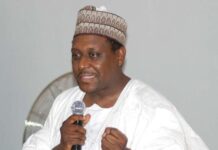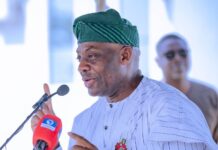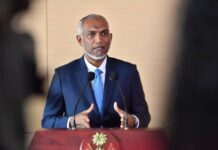
Ime Akpan
The chair, Lagos State Government Professorial Chair Endowment on Transport Studies, Prof Bamidele Badejo, has called for urgent integration of all transport modes in Nigeria to unlock the nation’s economic and social potential.
Badejo stated this in his keynote lecture entitled ‘The future of transportation in Nigeria: Trends, challenges, opportunities and the way forward’ delivered at the maiden edition of ‘Transport Infrastructure Summit’ held recently in Lagos and organised by JustAlive Communications Limited.
Badejo said multimodal transport integration is Nigeria’s most viable route to inclusive development, job creation, and sustainable urban growth.
According to him, transportation remains the “lifeline of any nation” and its dysfunction has a ripple effect on productivity, trade, and safety. He noted that when transport systems collapse, every aspect of life grinds to a halt, from essential services to economic activity.
“Transportation is life, nurtures life, and keeps life going. Without it, everything becomes stunted and deficient in reaching its full potential,” Badejo said.
The academic said Nigeria’s transport reality “is a paradox, a nation of vast opportunity trapped by poor planning and weak infrastructure.”
“Despite its population and resources, Nigeria still relies overwhelmingly on road transport, which carries over 90% of passengers and freight,” he added.
This dominance, he argued, come at a high cost: crumbling roads, constant congestion, environmental degradation, and soaring logistics prices that hinder industrial growth.
Badejo urged the federal and state governments to move from road-centric planning to multimodal transport integration, linking rail, road, air, and waterways into a single efficient network.
He emphasised that this approach not only boosts connectivity but also reduces travel time, cost, and emissions.
“Developing an integrated mult-imodal transportation system is crucial for Nigeria’s sustainable national development. It will improve efficiency, reduce costs, and promote environmental sustainability,” he said.
He further noted that transportation should be viewed as a derived demand one that responds directly to population, trade, and industrial activity. Hence, planning must be data-driven and responsive to evolving urban and rural mobility patterns.
Nigeria’s transport development, he explained, is held back by multiple structural weaknesses, including policy inconsistency, fragmented regulation, poor maintenance culture, and chronic underfunding. He criticized the proliferation of transport agencies with overlapping roles, describing it as a major cause of inefficiency.
Badejo also identified energy instability, indiscipline, and lack of human capacity as systemic bottlenecks.
“Our industry is still dominated by those qualified by experience rather than by knowledge,” he added.
Despite the challenges, Badejo outlined several opportunities that can reposition the transport sector as a growth engine. These include clean energy mobility, data-driven logistics, and port modernisation.
He said Nigeria can replicate its mobile technology leap by leapfrogging older transport technologies, adopting smart mobility systems, and embracing private sector participation.
He also called for stronger institutional collaboration, green transport investment, and a maintenance culture that prioritises sustainability over political expediency.
“The future will not just happen; we must build it deliberately,” Badejo concluded, urging policymakers to commit to a national multimodal transport framework that ensures connectivity, innovation, and resilience.
Earlier in her remarks, the managing director of JustAlive Communications Ltd., Mrs Pearl Ngwama, had called for an integrated transport master plan to propel Nigeria’s growth.
She stressed that the country’s transport infrastructure must become the engine of national development.
She said the world’s most advanced nations are built on formidable multimodal transport systems integrating road, rail, air and sea.
Ngwama also said Nigeria’s geographical location and economic diversity offer an unparalleled opportunity to build such networks, linking farms, factories, ports and airports into a seamless logistics chain.
“We only have to look around the world to see how advanced nations are built on multimodal transport systems. These systems facilitate trade, improve productivity, reduce costs and drive innovation,” she said.
Highlighting Nigeria’s economic momentum, Ngwama noted that maritime trade surged to N130.75 trillion in 2024, marking a 91% increase over 2023; aviation sector contributed N215.6 billion to GDP while the rail system recorded sharp increases in both passenger and freight movement in 2025.
“These numbers tell us we have momentum and potential, but also work to do,” she said.
Ngwama emphasised that transport infrastructure remains the bloodstream of the economy, asserting that when it flows freely, other sectors thrive, but when blocked, growth is stunted.
She urged collaboration among public and private stakeholders to ensure sustainability and innovation drive future transport development.
“Our ambition must be to move beyond quick fixes and stop-gap solutions. We must plan, finance and execute systems built to last and adapt as technology evolves,” she added.





















































